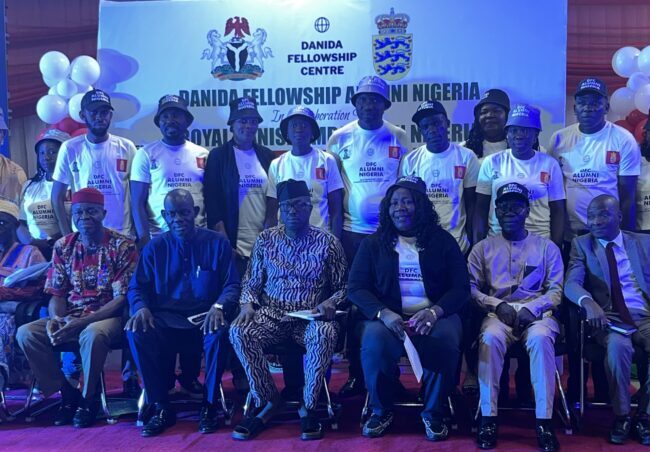The Danida Fellowship Alumni, Nigeria in collaboration with the Royal Danish Embassy In Nigeria have organised a training workshop for farmers and stakeholders on sustainable feed management and livestock production.
The Chief Veterinary Officer of Nigeria, Dr Columba Vakuru during his opening speech, said the theme of the training workshop, “Sustainable Feed Management and Livestock Production in Nigeria” is very apt given the need for production of the much-needed food for the teeming population in the country, especially food of animal origin.
Dr Vakuru who was represented by Dr George Uzoaga Onyemauwa noted that sustainable feed management and livestock production are crucial components of ensuring food security, environmental stewardship and economic viability in the agricultural sector involving the optimizing the use of available resources like water, land and nutrients to produce animal feed.
“It includes farming, crop rotation, and the use of cover crops to maintain soil health. It also encourages the utilization of non-traditional feed ingredients like agricultural by-products, food waste and insect protein to reduce reliance on conventional grains and reduce environmental footprints.
“As we all know, balancing the nutrient content in animal feed to match the specific needs of different livestock species cannot be overemphasised. By doing so, we reduce waste, improve feed efficiency and lower cost and environmental impact”, Vakuru said.
He noted that the cost of feed typically constitutes the largest portion of livestock production expenses ranging from 50 per cent to 70 per cent of the total production costs.
“The exact percentage can vary depending on factors such as the type of livestock (e,g Poultry, Cattle, Sheep & Goats or Swine), feed prices and regional differences. For some species, like poultry or pigs, feed costs can even reach up to 80% of total production expenses.
“This necessitates the sourcing of good quality and affordable feed ingredients, good processing and storage methods to avoid loss of nutrients and contamination with toxins and pathogens which are harmful to livestock when ingested, insecticides, herbicides, Aspergillus fungi which produces aflatoxins among others,” he added.
In her welcome remarks, one of the National Coordinators of Danida Fellowship Alumni, Sidikat Jumoke said sustainable feed management is essential for optimising livestock production.
She said all of the Sustainable Development Goals (SDGs) are one way or the other linked to climate change and food is directly linked to SDG one which has to do with no poverty, SDG two, zero hunger and twelve which has to do with responsible consumption and production.
Jumoke further noted that in Nigeria, agriculture is the cornerstone of the economy and food security, the implementation of sustainable practices are crucial and efficient for feed management and contributes to better livestock health, improve productivity and ultimately enhance food security.
She charged the participants to ensure they go home with a takeaway to improve agricultural productivity while minimising the impact on the environment and also improving livelihood.
The National Coordinator of Danida Fellowship Alumni, Mrs Ezeudegbunam Eucharia said the focus of the workshop is to end hunger, increased food production.
She said the theme has four components, which include antimicrobial resistance, livestock production and good practices, climate change, feed and fodder.
ALSO READ THESE TOP STORIES FROM NIGERIAN TRIBUNE
JUST IN: ASUU embarks on indefinite strike in Gombe varsity
